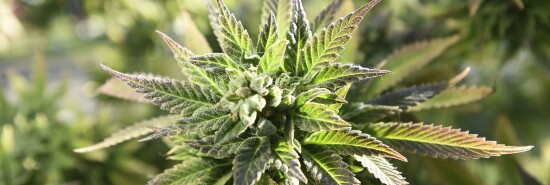
Politicians tell big lies to celebrate marijuana
Colorado Springs Gazette Editorial Board
Video Embed
Our state’s highest-ranking politicians must think misery loves company. Gov. Jared Polis (D) and Sens. Michael Bennet (D) and John Hickenlooper (D) rank among the country’s most enthused advocates of marijuana legalization.
Sunday marks the 10th anniversary of Colorado becoming the first state to legalize recreational pot. State leaders are celebrating like children. They want pot legalization from coast to coast.
When Bennet introduced his Marijuana Justice Act in 2019, he declared it “the most far-reaching marijuana legislation ever to be introduced in Congress.” His bill would help “low-income individuals and/or people of color.”
Hickenlooper celebrates the anniversary by reminding everyone of his crusade to legalize nationally. Thursday, he announced his new bill “to pave the way for federal marijuana legalization” as drug problems exacerbate throughout Colorado.
“I go into the U.S. Senate on a regular basis and say, ‘We can prove that since we legalized marijuana, there has been no increase in teenage experimentation. No increase in consumption. No increase in driving while high,’” he said, as quoted this week in a news release by a leading marijuana law firm.
His words are simply untrue. Five years into legalization, when Hickenlooper served as Colorado governor, the federal High Intensity Drug Trafficking Area ranked our state first in the nation for marijuana use by children ages 12-17. It put us 55% higher than the national average and more than double the rate of youth marijuana use in neighboring Utah.
“Of the top 10 states in youth marijuana use, every single one has either legalized marijuana entirely or made it available for medicinal use. In the bottom 10 states, marijuana is still considered illegal,” the agency said.
More recent data from the federal agency show Colorado’s past-month marijuana use among those ages 12 and up a whopping 61% higher than the national average.
A study last year by the pro-marijuana National Organization for the Reform of Marijuana Laws ranked Colorado second in per-capita adult use of marijuana, just behind Oregon — the state that legalized recreational pot on the same day as Colorado.
“Jurisdictions with the greatest number of adult consumers per capita were states where adult-use cannabis is legal,” the National Organization for the Reform of Marijuana Laws reported.
The top two states for marijuana use are also known for the cities of Portland and Denver. Each has seen crime and mental illness soar in the past 10 years. Each city is known for a proliferation of homeless encampments on sidewalks and in parks in the past 10 years.
A 2019 Office of Justice Programs study found “Colorado in particular reported an increase in the homeless population from individuals moving to the state for jobs in the marijuana industry that failed to materialize.”
In the same law firm news release, Polis directly links marijuana legalization to “making our communities safer.” He has absolutely nothing to back this statement. A mountain of evidence indicates the opposite.
The World Population Review’s rankings for 2022 put Colorado’s crime rate as the third highest in the country. That’s compared with 2012 data that showed Colorado among 25 states with the least amount of crime. Today, we’re first in car thefts, bank robberies, and porch piracy. Denver is second among large cities for rapes.
Hickenlooper says, “No increase in driving while high.” Here’s what the National Institutes of Health reports, using data:
• Since Colorado legalization, traffic deaths where drivers tested positive for marijuana increased 138%, while Colorado traffic deaths increased 29%.
• Since recreational marijuana was legalized, traffic deaths involving drivers who tested positive for marijuana more than doubled from 55 in 2013 to 131 people killed in 2020.
• Since recreational marijuana was legalized, the percentage of Colorado traffic deaths involving drivers who tested positive for marijuana increased from 11% in 2013 to 20% in 2020.
The Office of Justice Programs found “a 55-60% increase in marijuana-related DUIs” in Oregon since legalization.
When Colorado’s politicians lie to shill for marijuana legalization, they’re up against irrefutable facts that prove them wrong. The numbers tell the truth. Colorado is far worse 10 years past its foray into drug legalization. Nov. 6 is nothing informed, responsible adults should celebrate.
This editorial originally appeared in the Colorado Springs Gazette.
